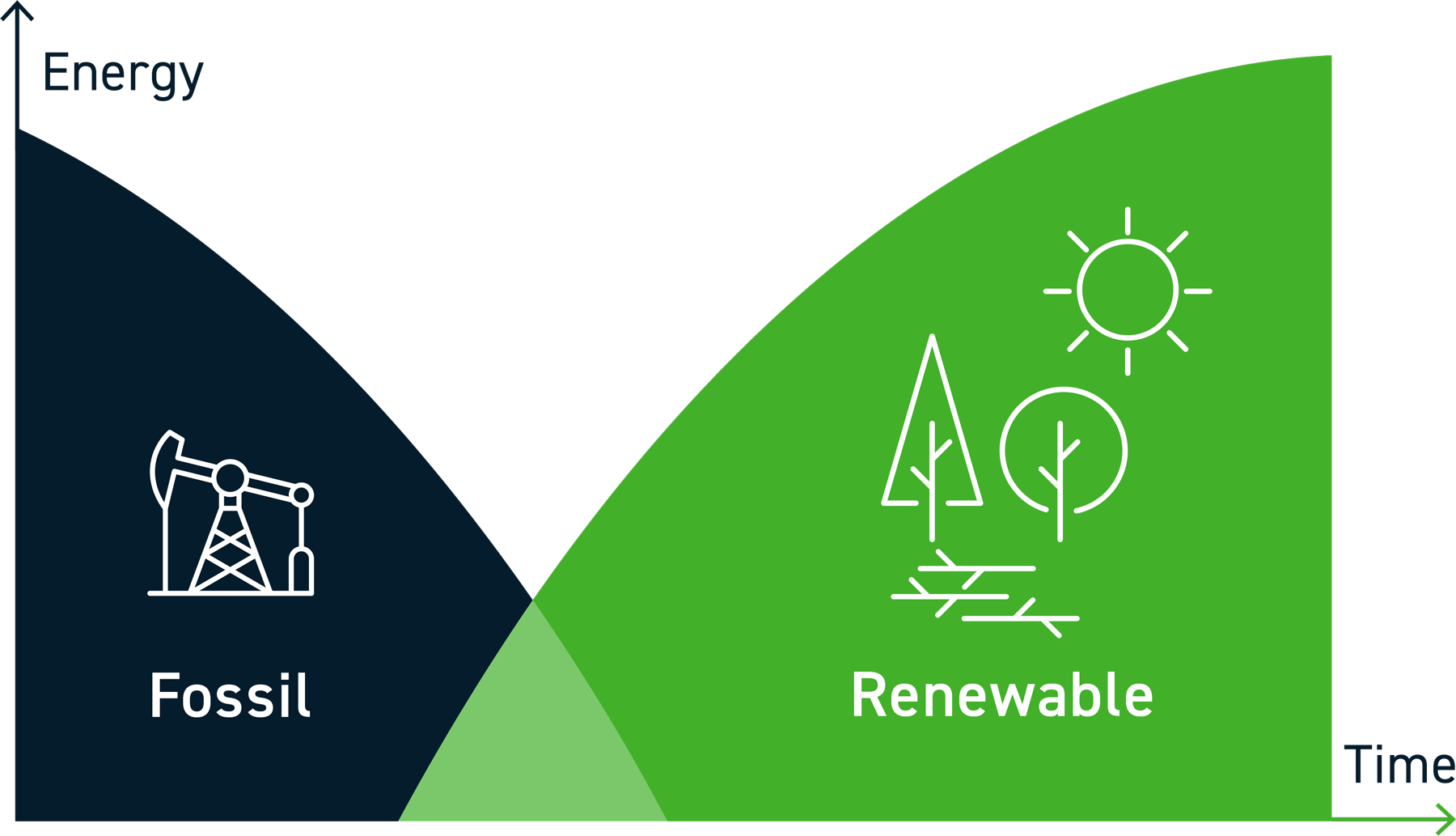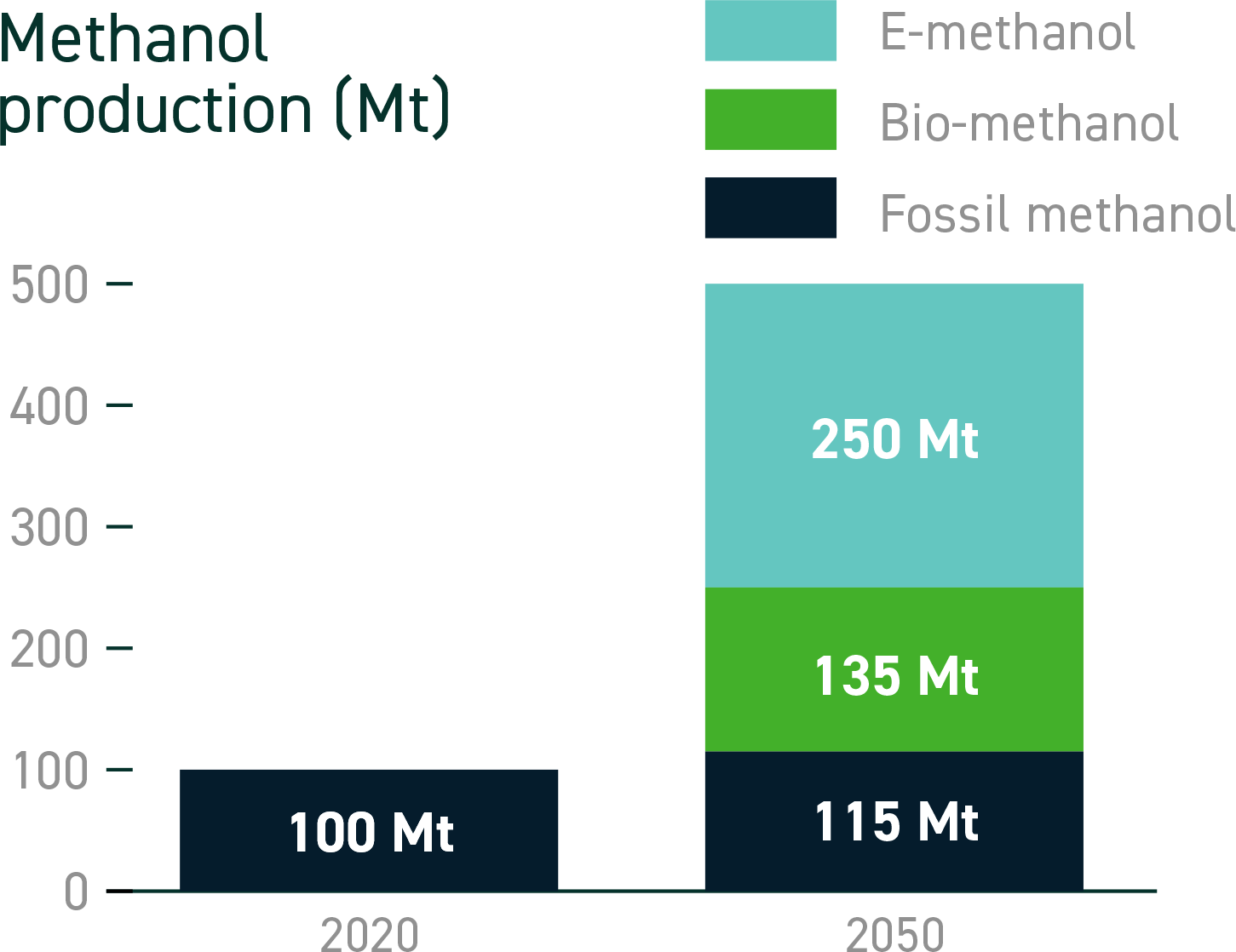
An environment-friendly energy system will phase out the fossil fuels – coal, oil and gas.
Biomethanol can help to start this global paradigm shift, allowing the world to reach its goal of significant emission reductions by 2030.
As an energy and hydrogen carrier, biomethanol can be implemented right now and help to meet an insatiable demand for transport fuels and chemical industry ingredients.
We overcome global environmental challenges and create local value by producing biomethanol and by developing zero-emission user solutions based on this commodity.
We have the answer to how green hydrogen can be implemented right now as an alternative fuel in the transport sector, both on land and at sea.
Methanol is a highly efficient energy and hydrogen carrier, which can be distributed and refuelled as easily as diesel oil and petrol.
Definitions:
Biomethanol = methanol based on residual biological raw materials.
E-methanol = produced with electrolysis as an input factor.

Some 100 million tonnes of methanol are produced annually. Extensive infrastructure and logistics therefore already exist. Large quantities of green bio- and e-methanol are due to be phased in over coming decades.
Insatiable demand
Estimates indicate that demand for methanol will rise to more than 500 million tonnes by 2050.
Biomethanol and other green variants will account for 135 million and 250 million tonnes of this increase respectively (source: Methanol Institute).
The need for biomethanol as both fuel and ingredient is a specific and low-hanging fruit for the plucking.
We foresee an insatiable demand which paints a promising picture – both environmentally and financially.

Annual global production of methanol, actual in 2020 and estimated for 2050 (in million tonnes/megatonnes). Source: Methanol Institute